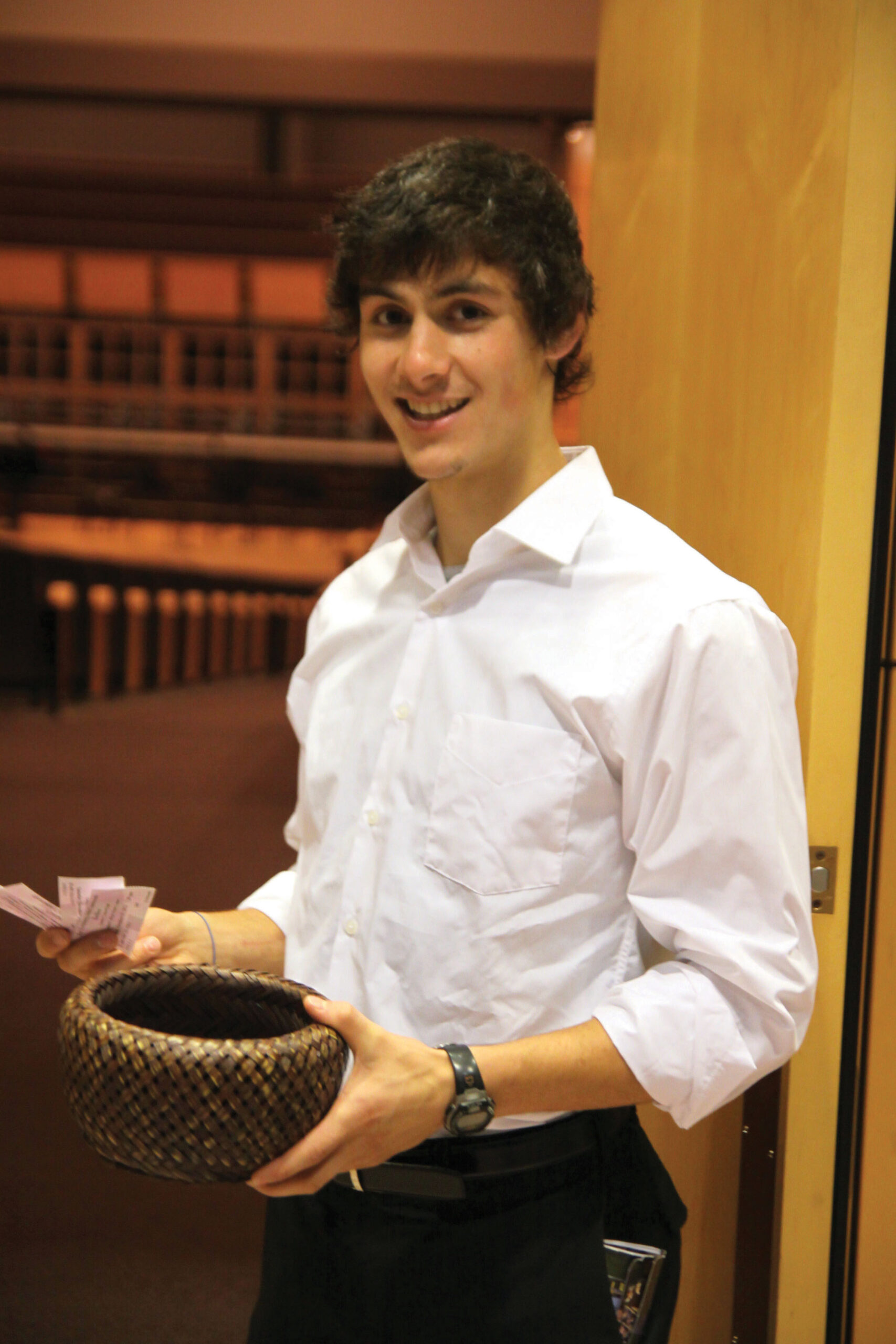They rip your ticket, enlighten you as to where your seat is, bustle about during intermission and scour the empty halls for discarded programs at the end. Who are these seldom acknowledged, dashingly attired individuals? They are the ushers of Goshen College. Handpicked by Grace Swartzendruber, performance venue production manager and Brian Mast, music center managing director.
The ushers are volunteers. While they may be gifted free access to concerts, they are not on payroll. But the value of the tickets the ushers receive comes to almost $300, according to Swartzendruber. The ushers work five shows a semester, which comes to about 20 hours a year.Cecilia Lapp Stoltzfus, a first-year and first time usher said, “The most challenging part is the time commitment.”
Lucas Harnish, a sophomore, applied for the position in order to be able attend the Performing Art Series events.
“The kicker was I figured out this is the only way I would ever be able to see Garrison Keillor,” said Harnish.
After being hired, the ushers fill out a paper where they request what shows they would like to work.
Said Swartzendruber, “It works out well. We are able to get the students into the concerts they want.”
The highlight for Stoltzfus was “getting in those doors to see the WaiIin’ Jennys,” she said. “But I am also getting to see groups I wouldn’t have decided to go see otherwise.”
Said Harnish, “The auditions are pretty cut throat. Most people would snicker at that, but if you had been there…”
At the auditions the applicants respond to different possible situations. Mast and Swartzendruber role-play misbehaving, rowdy audience members and the usher applicants have to problem solve on their feet.
According to Ben Ganger, a sophomore who is in his second year of ushering, the job normally goes smoothly and the ushers’ problem-solving prowess is rarely needed. Usher seats are scattered around at the end of every section of the hall in case of an emergency.
The biggest obstacle Ganger has had to face was during the Emmy Lou Harris concert last January where an audience member kept trying to take pictures.
Stoltzfus’ greatest challenge was addressing an audience member’s complaints about a loud group of young people during a performance. She mentioned that there is also some awkwardness when an usher offers to help someone find their seat and they get offended because they know where it is.
Swartzendruber sees the greatest perk of using students as ushers is the cultivating of relationships between students and the audience, many of whom are from the community.
Said Swartzendruber, “In a job like this you begin making connections because you have repeat audience members, older generations especially.”



